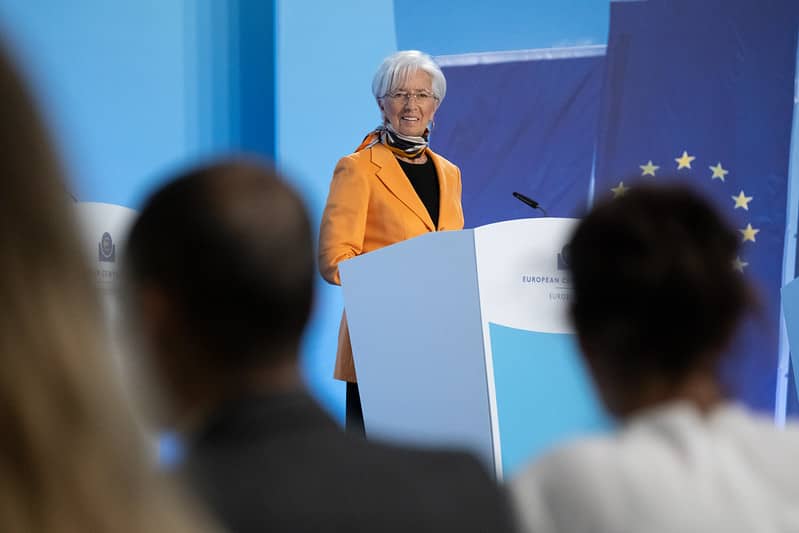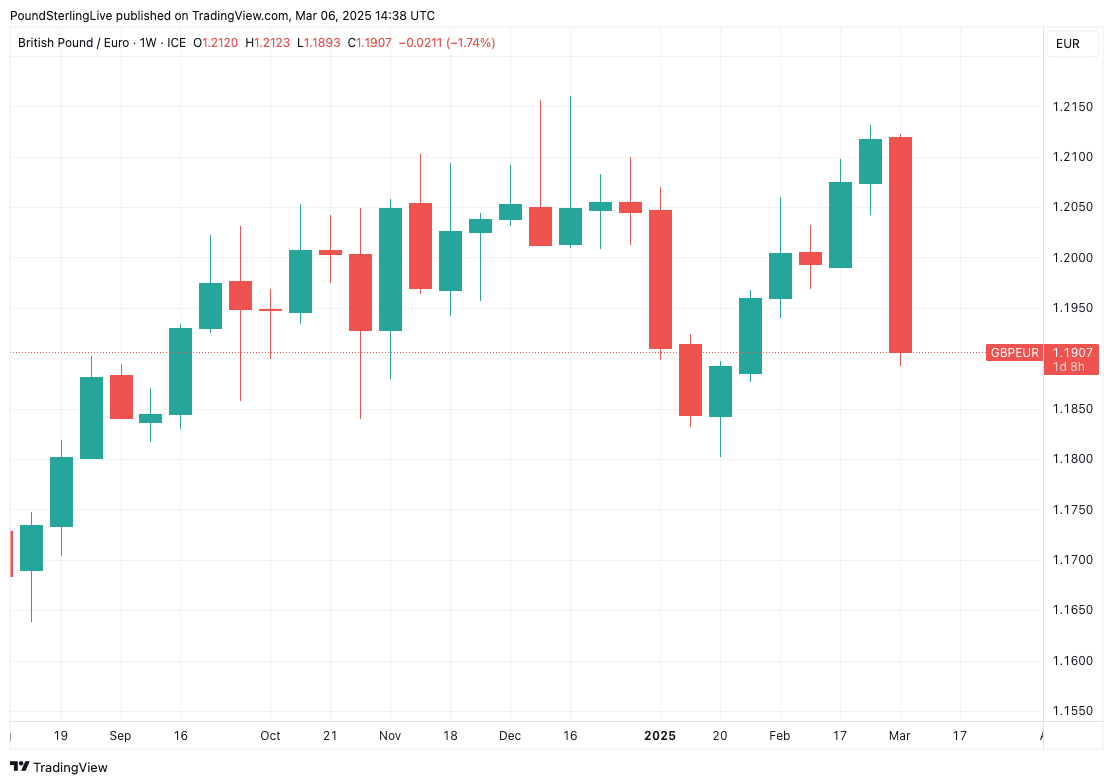
ECB President Christine Lagarde during the Governing Council Press Conference in Frankfurt am Main, March 6, 2025. Photo: © Felix Schmitt for ECB.
Euro exchange rates extended a run of remarkable gains after the latest decision to cut interest rates by 25 basis points.
The European Central Bank's cut lands at an awkward time of rapidly evolving geopolitical upheaval that will directly affect the future of European monetary policy.
Having long signalled it would cut rates again today, the ECB had little choice but to follow through. However, its signalling regarding where it goes from here shows it thinks it will cut by less than previously thought.
"By describing policy as 'meaningfully less restrictive,' the ECB acknowledges improving domestic conditions—and, crucially, that fiscal easing is pushing the neutral rate higher. As a result, the likelihood of the deposit rate falling below 2% has significantly diminished," says Mathieu Savary, Chief European Strategist at BCA Research.
This is a 'hawkish' takeaway that is supportive of the recent surge higher in European bond yields and the Euro: The Pound-to-Euro exchange rate's loss extended to 1.19 in the minutes following the decision, with EUR/GBP rising to 0.84.
Euro-Dollar rose to 1.0825, taking its weekly gain to an astonishing 4.33%.
"The ECB finds itself in a challenging position between the threat of US tariffs in the near-term that could warrant further policy rate cuts — and a move into stimulative territory – and the growing commitment to higher defence spending over the next several years," says Mark Wall, Chief European Economist at Deutsche Bank.
Above: GBP/EUR at weekly intervals.
The European Union announced this week it would issue billions of euros worth of debt and lend the proceeds to EU countries to boost defence spending.
But it was Germany that proved the game-changer, with the government announcing it would alter the constitution to spend billions not just on defence but on infrastructure.
The multiplier effect of this spending will raise not just Germany's economy but that of Europe.
This spells higher growth and inflation rates than the ECB has in its forecasts.
In turn, the depth to which it must cut interest rates to support the economy is greatly reduced.
The stronger Euro is a manifestation of the changing arithmetic.
"While the impact of fiscal spending may take time to filter through to the economy, a positive boost to sentiment, which could be lifted further if there is a ceasefire in Ukraine, could see spending and investment rise in the coming months," says Dean Turner, Chief Eurozone Economist at UBS Global Wealth Management.

